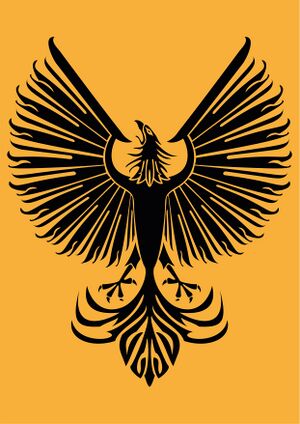Teutonia: Difference between revisions
No edit summary |
No edit summary |
||
| (2 intermediate revisions by the same user not shown) | |||
| Line 1: | Line 1: | ||
[[File:Gold Teut-01.jpg|thumb|]] |
|||
'''Teutonia is often perceived from the outside as a nation of immoral pragmatists, justifying their means by the outcome of their actions, who are known to make deals in the dark with demons and the undead. |
'''Teutonia is often perceived from the outside as a nation of immoral pragmatists, justifying their means by the outcome of their actions, who are known to make deals in the dark with demons and the undead. |
||
| Line 7: | Line 9: | ||
From international trading ports on her coasts to the twisted boughs and gnarled roots of the Black Forest, Teutonia is a vast and varied landscape. She is a land of old, dark ways, brought into the light and given purpose. In other countries Necromancy is seen as inherently evil, and a force for darkness, but within our lands it flourishes. Licensed undead work for the betterment of the living while sentient unliving, such as Vampires, walk amongst the people as friends and allies within the safety of our borders. |
From international trading ports on her coasts to the twisted boughs and gnarled roots of the Black Forest, Teutonia is a vast and varied landscape. She is a land of old, dark ways, brought into the light and given purpose. In other countries Necromancy is seen as inherently evil, and a force for darkness, but within our lands it flourishes. Licensed undead work for the betterment of the living while sentient unliving, such as Vampires, walk amongst the people as friends and allies within the safety of our borders. |
||
It is a nation of individual talents coming together for the betterment of the whole. From philosophers pondering questions about our relationship with our gods to soldiers fighting one of the country's many enemies, the people's collective strengths improve the nation. They are not a people famed for their beliefs in the concept of glory and honour on the battlefield. However, they are known far and wide for their efficiency and |
It is a nation of individual talents coming together for the betterment of the whole. From philosophers pondering questions about our relationship with our gods to soldiers fighting one of the country's many enemies, the people's collective strengths improve the nation. They are not a people famed for their beliefs in the concept of glory and honour on the battlefield. However, they are known far and wide for their efficiency and pragmatism to overcome great odds to win the day, sometimes through the willing self-sacrifice of a small few to protect the rest. |
||
Latest revision as of 17:57, 23 April 2024
Teutonia is often perceived from the outside as a nation of immoral pragmatists, justifying their means by the outcome of their actions, who are known to make deals in the dark with demons and the undead.
In reality, nothing could be further from the truth, and it is, in fact, a nation of highly moral pragmatists who make deals with demons and the undead in broad daylight.
Teutonians are a highly religious people, with a pantheon of 13 gods that are a core part of the identity and history of the country and the citizenry. There is a solemn, devout and ingrained belief that everything Teutonia does should be to serve the gods. How you show your devotion to them is unimportant, but showing that devotion is critical.
From international trading ports on her coasts to the twisted boughs and gnarled roots of the Black Forest, Teutonia is a vast and varied landscape. She is a land of old, dark ways, brought into the light and given purpose. In other countries Necromancy is seen as inherently evil, and a force for darkness, but within our lands it flourishes. Licensed undead work for the betterment of the living while sentient unliving, such as Vampires, walk amongst the people as friends and allies within the safety of our borders.
It is a nation of individual talents coming together for the betterment of the whole. From philosophers pondering questions about our relationship with our gods to soldiers fighting one of the country's many enemies, the people's collective strengths improve the nation. They are not a people famed for their beliefs in the concept of glory and honour on the battlefield. However, they are known far and wide for their efficiency and pragmatism to overcome great odds to win the day, sometimes through the willing self-sacrifice of a small few to protect the rest.
